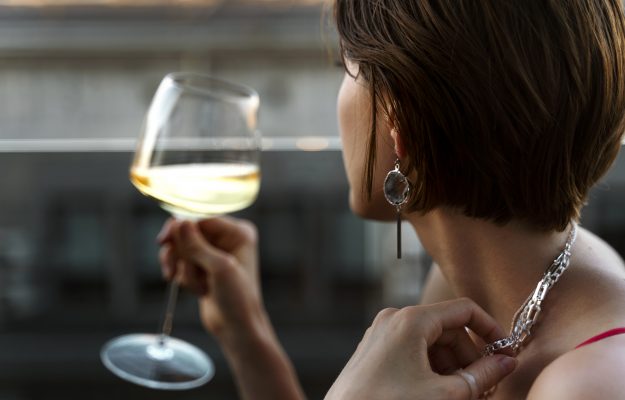The world is changing fast, in so many aspects of life. There is a greater focus on well-being, not only on material and related to the quantities of consumption, as it was in the past and in the years of the economic boom, but always on the “spiritual” one, which calls into question the pleasantness of an experience, and with an ever-increasing eye to the theme of wellness and health, as also pointed out by Giuseppe Schirone (Prometeia researcher). And wine is no exception. And, with in consumption that for all these factors, in quantity, will be inexorably declining, at least from here to the next 20 years, also due to the aging of the population that now drinks more, with young people not enough to “replace” it, the focus will be on building value, on which a change of pace is needed “because despite the growth of Italian wine is evident in the last 40 years, if we look at this aspect we are more or less always on the same levels”, Schirone said again. And if then, as is the case with fashion, it is crucial to focus on the luxury segment, “which is the one that guarantees the most margin, which knows no crisis, and which allows you to do the best, best and most sustainable things, because it brings in the most resources”, said Renzo Rosso, at the helm of Diesel and many other top fashion brands, but also a wine producer with his “Brave Wine” group (with which he runs his winery, Diesel Farm in Marostica, and holdings in wineries such as Benanti, on Etna, and Josetta Saffirio, in Langhe, and Masi Agricola in Valpolicella), on the premiumization agrees also Lamberto Frescobaldi, entrepreneur at the head of one of the most important names in Italian wine, and president of Unione Italiana Vini (Uiv), who, however, stresses how one should not forget all that segment of the market “where the relationship between quality and price is decisive, because as it happens in the car market, the references are the big models of Bmw or Audi, for example, but in the end the best-selling car is the Fiat Panda”. Messages and reflections came from the Unione Italiana Vini (Uiv) general assembly, yesterday in Rome, with data from the Uiv Observatory on the outlook to 2040, in the presence, among others, of the Minister of Agriculture, Francesco Lollobrigida.
“I believe in positioning and premium products that allow better margins and give companies in the sector the opportunity to invest”, said Renzo Rosso, “and work in a more modern way. Investments in sustainability are needed: today we have an obligation to cultivate our land in a sustainable way, producing less and better. New consumers are already demanding this. Investments in technology are needed, and it is essential to present ourselves to the world in the right way. Wine, in this sense, needs to make a big leap in visibility: communicate more, social media, capsules, special graphics and bottles, celebrities, events... we need to create that wine coolness, which the French are better at today than we are, while we have an incredible richness of terroir to enhance”. And if the reasoning is shared, not everything can be luxury, and it also applies to tourism, a sector that, especially in Italy, is very much linked to food and wine, as pointed out by Bernabò Bocca, president of the “Sina Hotels” group and Federalberghi, among others. “Tourism in general is doing very well today, after two years of Covid-related closures, there is now a strong recovery. The big problem, going forward, is that we are already “single market”: we are doing very well in the American market, thanks to strong dollar, the fact that Americans were flooded with cash during Covid, and that Americans love Italy. But if we have cities like Rome, Florence and Venice where you struggle to walk by how many people there are, other areas that live on tourism, including European and domestic tourism, struggle. To make land management policies”, Bocca stresses, “we need courageous choices that are not tied to electoral consensus. At the category level, however, five-star hotels and lower, more affordable offerings, which, in any case, over the years, have raised quality, are fine. But everything in between suffers”.
It is difficult to find a recipe that works everywhere, and in all market segments. But the only certainty, at least it seems, is that the luxury segment, in any case, will grow again, not only in wine and tourism, but in the entire food and wine sector, as pointed out by Riccardo Illy, at the head of the “Polo del Gusto”, which brings together all of the Illy group’s extra-coffee activities, from tea to confectionery. “The high-end has responded well and will continue to grow. But as an entrepreneur, I am positive in general, for made in Italy. At the end of the year, on the inflation front, things will improve, and there will also be the effects of Pnrr. But then we will need structural interventions on the labor front and beyond. Wine? After selling Mastrojanni in Montalcino, to our brother Francesco Illy, we will return to invest in it, within a few years”. Perhaps in Barolo, one of the two most important territories of Italian wine, as always supported by Illy, and a true symbol of that high-end wine, from Barolo to Barbaresco, which, by all accounts, is the segment that sees the brightest future ahead.
Copyright © 2000/2026
Contatti: info@winenews.it
Seguici anche su Twitter: @WineNewsIt
Seguici anche su Facebook: @winenewsit
Questo articolo è tratto dall'archivio di WineNews - Tutti i diritti riservati - Copyright © 2000/2026







































































































































































































